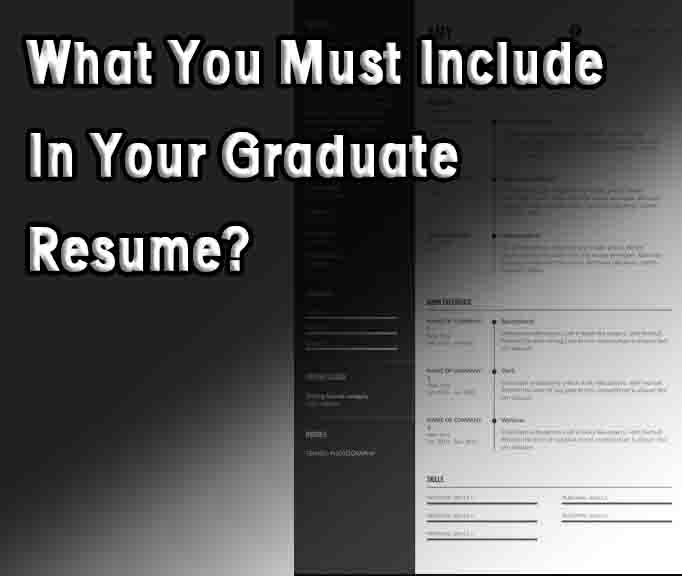Many experienced workers sometimes struggle with formatting and producing a quality resume. You probably don’t have much work experience if you’re in college or a recent graduate, which makes preparing a resume even harder. But don’t be disappointed; there are several things you can take to make your student or graduate resume stand out from the competition.
Table of Contents
What Your Graduate Resume Must Include
You can use the following guidelines to write a resume for a recent graduate student:
Include Your Professional Contact Details
Include a header with a list of your contact details at the start of the document. Add your full name, contact information (including your home city and state), email address, and phone number. These specifics make it simpler for your potential employer to get in touch with you and arrange a meeting. Therefore they must be simple for the recruiter to locate on the page.
Create A Resume That Meets The Job Description
It’s crucial to adapt your resume to fit the position. Start by reading the job description in its entirety and marking any phrases and keywords you come across. Then, use these phrases wherever they make sense in your resume. Even if a candidate tracking system processes the resume, most hiring managers will look for keywords associated with crucial skills.
You can use a tool on the job description if you’re having difficulties locating keywords; it will highlight the most important terms. After you’ve completed generating your resume, put it through the same keyword generator to determine if its keywords match those in the job description.
Create A Resume Objective
Your resume objective should only be a couple of sentences long. The resume objective emphasizes your reasons for applying for a particular position more so than it does your previous employment history. Always keep to the resume summary if you’re an experienced professional with numerous years of employment in your background.
However, you might wish to utilize a resume objective if you fall under one of the following categories:
- Recent graduate with no prior work experience
- Professional undergoing a major career change with no relevant prior work experience
- Seeking your first internship as a student
- Professional with a job gap
Highlight Your Education, Qualifications, And Skills Using Keywords
Your education, qualifications, and skills are the most important components of your resume. Your ability to demonstrate your qualifications for the position you seek and your degree can both be enhanced by including this information. Your graduate resume should have the following sections, each with its own content:
- Education: List the degrees you’ve acquired along with the institutions where you did so.
- Certifications: List any expert certifications you have earned. It can support your academic qualifications while validating your talents and technical understanding.
- Skills: Pick technical, soft, and hard skills that demonstrate why you are a good fit for your desired position.
To improve your chances of being spotted by both humans and bots, evaluate what keywords to include in your entry-level resume. Use language appropriate to the position and sector. Utilizing the exact keywords from the job description when writing your resume is one approach to make it unique for each position you apply for.
Include Work History
Even if your previous job experience does not directly relate to the jobs you are applying for, it is still crucial to demonstrate to recruiters that you are employable, capable of completing tasks effectively and acquiring new skills.
You ought to talk about internships and positions where you may emphasize your applicable abilities. Include 2-4 bullet points outlining your duties and accomplishments in that role for each work entry, along with your employment title, the name and location of the employer, and the days you worked there.
Resume Writing Advice for Recent Graduates
Emphasize any relevant experience – Include any work experience you may have. Any more relevant experience can be added, though. A few examples of this are employment in student organizations, unpaid internships, and volunteer work. These tasks allow you to show off the abilities that distinguish you from other applicants, even though they are unpaid.
Use resume examples – It can be difficult to know where to start when making your first resume after graduating from college. You can get some ideas for the tone to employ and the structure of your resume from examples. Never forget to modify an example to reflect your specific background and experience, though.
Proofread and edit – Before submitting your resume, thoroughly proofread it for spelling and punctuation mistakes. Additionally, be sure that your formatting is consistent. Ask a friend, family member, or the college’s career counselor to look over your resume as well.
The Bottom Line
It’s intimidating to write your first resume just after graduating. Fortunately, it doesn’t have to be. Employers are aware of the wide range of skills and knowledge that may be acquired through higher education. You can showcase these abilities on your resume and convince potential employers to hire you.

